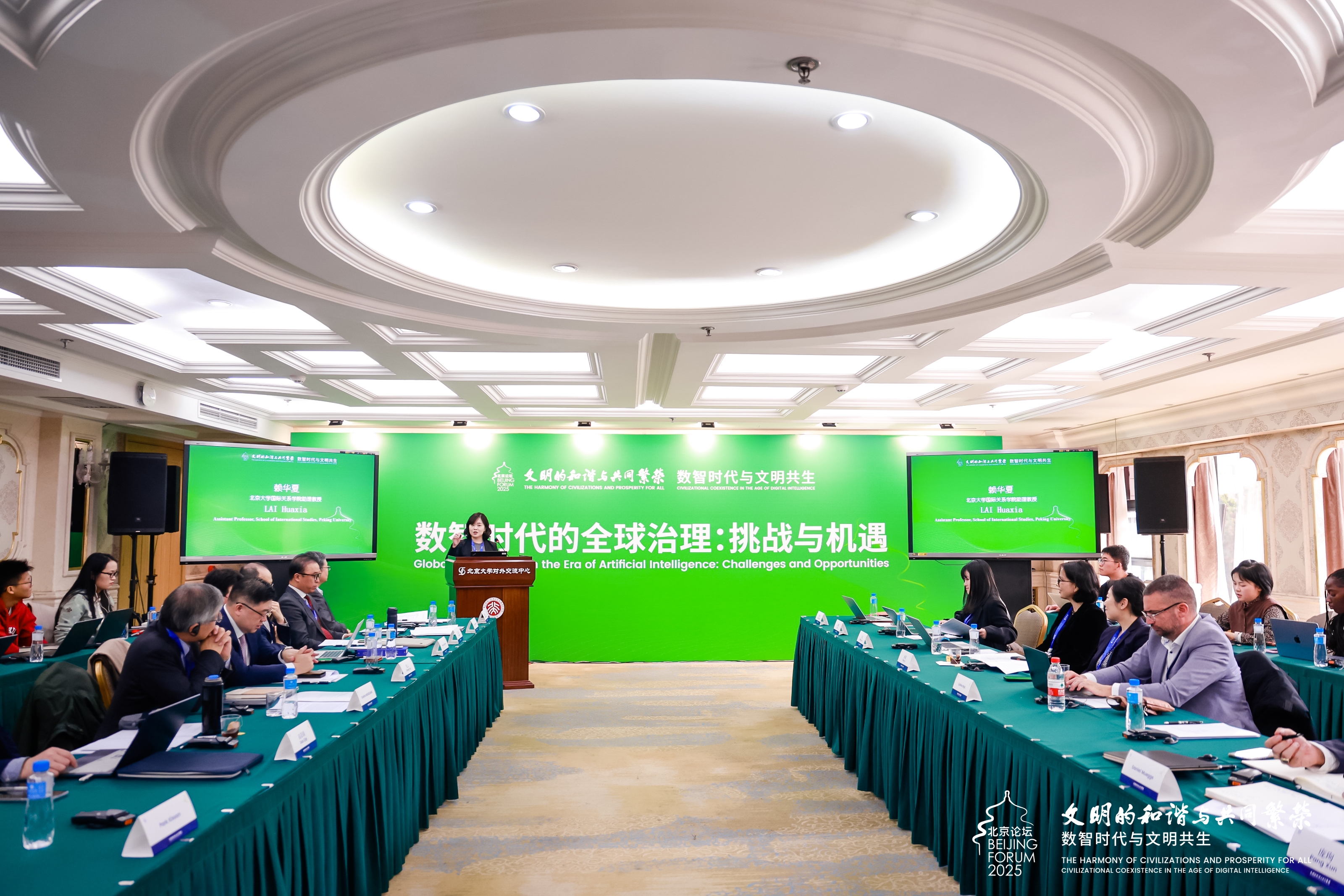 Peking University, November 13, 2025
Peking University, November 13, 2025: Gathered at Peking University’s Yingjie Overseas Exchange Center on November 8, scholars, students, and faculty together examined AI’s role in power, ethics, international cooperation, and addressing global challenges. The discussion was a panel session of Beijing Forum 2025, titled “Global Governance in the Age of Intelligence: Challenges and Opportunities.”
The full-day event was divided into three sub-sessions, each exploring different facets of AI governance.
Daniel Mügge, Professor of University of Amsterdam, emphasized that AI is not just a market product but a force that shapes political realities. “Digital technologies are not just products that are sold on the market, they build worlds in which we exist.” He warned that the emergence of two dominant digital superpowers, the United States and China, risks dividing the world into “different spheres of digital influence,” where smaller nations must navigate dependence on one or the other. Mügge urged for an alliance among mid-tier powers and developing nations to assert collective agency in shaping global AI norms.
On using AI to reduce global disparities, Jue Wang, Associate Professor of Nanyang Technological University, presented findings from her study on AI and knowledge equality. She argued that AI can democratize science but also risks deepening structural divides. “AI allows developing countries to participate more fully in scientific discovery,” she noted, “but we must ensure equal access to data and computational resources.” Her remarks resonated with discussions across the forum, which linked AI’s transformative potential to issues of access, fairness, and digital sovereignty.
Other speakers, including Pang Xun, Professor of School of International Studies, Peking University, underscored the dangers of delegating critical decisions to autonomous systems. She cautioned that as “machines increasingly influence or even make strategic choices,” societies must confront new uncertainties, particularly those “arising from machine bias and persona drift.”
Across all discussions, one theme was clear: AI’s future will depend not only on technological progress, but also on humanity’s ability to govern it with fairness, transparency, and shared responsibility.
Written by: Efua Amfo
Edited by: Chen Shizhuo
Photo by: Office of International Relations
